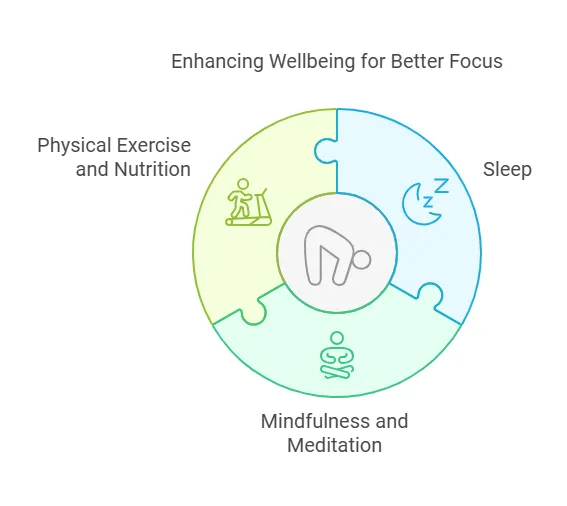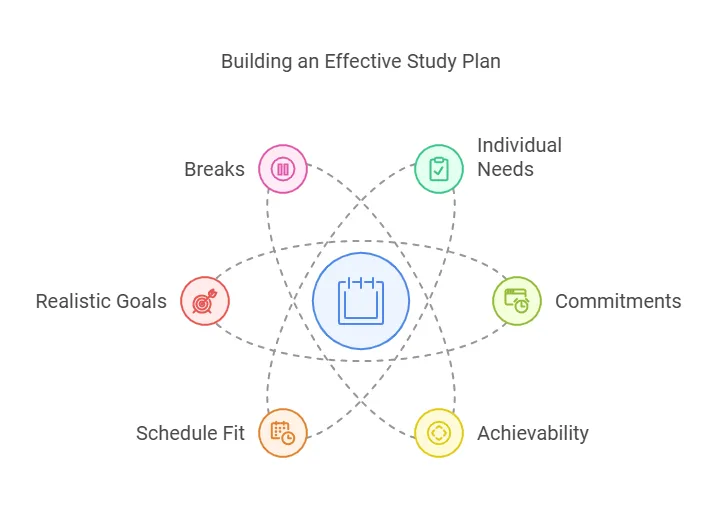How to Avoid GMAT Burnout: Conquer the Test Without Losing Yourself
The journey to ace the GMAT often feels like climbing a steep mountain. You’ve been spending endless hours tackling practice questions, and with the test date looming closer, the pressure only builds. It’s a feeling many aspiring business school students know all too well—stress and exhaustion creeping in, threatening to derail your hard work. You’re not alone; nearly half of all GMAT test-takers report feeling overwhelmed during their preparation.
This article is here to guide you, how to avoid GMAT Burnout through practical strategies to beat burnout and help you stay motivated on your path to success. Let’s tackle this challenge together!
Prioritize Self-Care: Your Mental and Physical Wellbeing
Mindfulness and Meditation
To reduce stress, consider incorporating mindfulness techniques into your routine. Mindfulness helps center your thoughts and promotes clarity. Apps like Headspace or Calm provide guided sessions that fit seamlessly into your day.
Physical Exercise and Nutrition
Regular exercise is not only beneficial to the body but also to your mood and concentration. Make sure to have at least 30 minutes of physical activity every day, be it a brisk walk or a quick workout at home. Combine this with a balanced diet rich in fruits, vegetables, and lean proteins. Meal prepping will save you time and ensure healthy eating amidst study sessions.
Adequate Sleep
Sleep profoundly impacts cognitive function. Aim for 7-9 hours of quality sleep each night. Create a sleep-friendly environment by keeping your room dark and cool. Consider establishing a bedtime routine to help signal your body that it’s time to wind down.

Develop a Realistic and Sustainable Study Plan
Time Management Techniques
Minimize feelings of being overwhelmed by effective time management. Boost productivity by studying in short bursts followed by brief breaks. Alternatively, block out specific times in your calendar solely for study sessions.
Break Down the GMAT
Instead of piling up all the material at one time, break your study into manageable sections. For instance, spend one week on quantitative skills and the next on verbal reasoning. A sample study schedule would look something like this:
1st Week: Basics of quantitative reasoning
2nd Week : Practice questions
3rd Week : Fundamentals of verbal reasoning
4th Week : Full-length practice tests
Regular Breaks and Downtime
Regular breaks in your study routine can recharge your brain. Set time for hobbies or activities that relax you, such as reading or listening to music. This downtime is crucial to avoid mental exhaustion.

Seek Support and Build a Community
Study Groups
Preparation is less lonely when you join a study group. Collaborative learning provides you with different views of challenging topics. Find your peers through forums or social media.
Mentorship and Guidance
You should find mentors who have successfully navigated the GMAT process. Their experiences can provide invaluable insights and keep you motivated during the journey.
Open Communication with Loved Ones
Let your family and friends know about your study schedule and challenges. Open communication helps reduce stress and enables them to support you better.
Master Effective Study Techniques
Active Recall and Spaced Repetition
Both these techniques help in effective retention. Active recall in learning helps reinforce memory because of the active process behind it. Spaced repetition, on the other hand, reviews information over ever-increasing intervals, causing it to stick better.
Practice Tests and Analysis
Take full-length practice tests regularly. Review your performance to understand where you are strong and weak. Use the Official GMAT Prep or Manhattan Prep to get high-quality practice questions.
Focus on Your Strengths and Weaknesses
A focused approach would make your study more effective. Spend more time in areas that you feel uncomfortable with, and strengthen areas where you are already performing well to keep the momentum going.
Recognize and Address Burnout Symptoms
Early Warning Signs
Common signs of burnout consist of being tired, irritable, and less motivated towards a given activity. A person noticing these signs initially can work on recovery by the time they get worsened.
Recovery Approaches
If you become burnt out, take a short time to break. Sleeping for an hour or sleeping off school for a day or two can revitalize your mind. You could also take help from colleagues, relatives, or counselors if you really need one.
Final Thought | How to Avoid GMAT Burnout
In summary, burnout does not necessarily have to come about from the process of tackling GMAT preparation. One can focus on self-care, make a realistic study plan, seek support, and master effective study techniques among other things. It is guaranteed to succeed when one incorporates all the strategies into his or her routine. Remember that there is always a possibility to achieve your goals without damaging your well-being. The journey is yours, let yourself thrive on this road.




